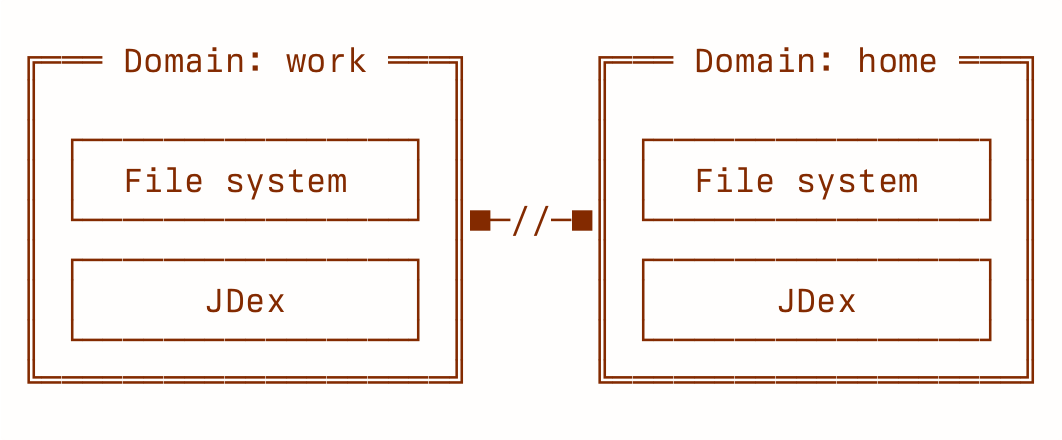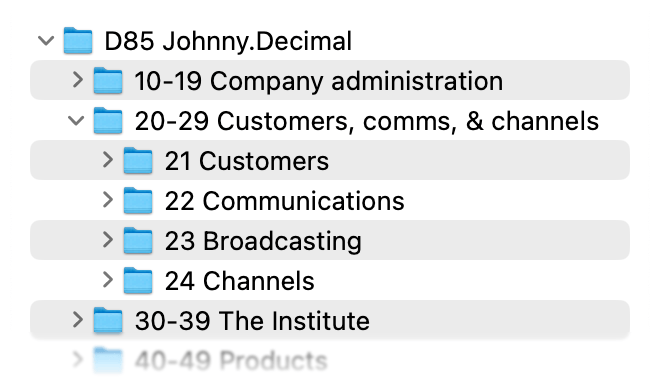Usage considerations
This page relates to multiple systems.
Multiple systems are for when you have two distinct systems that do not overlap. For example, a personal system and a work system.
Do not use this if you think you have 'filled up' an existing system and need more room. Correct your design instead.
Imagine having two personal systems. Doubling the number of IDs you manage would add complexity and reduce clarity. I've never encountered a scenario where this would be required.
Try to extend the end first
Before creating a new system, consider if the simpler extending the end would solve your problem.
Because adding a new system doubles the number of possible IDs under management from 10,000 to 20,000. Each of those IDs is the more complex SYS.AC.ID.
Extending the end of a single ID raises the number of IDs from 10,000 to 10,001. The only ID that changes, becoming AC.ID+SUB, is the one you extended.
Truly separate domains don't require multiple systems
Consider the problem we are solving: conflicting IDs. If you have two instances of 11.11 within a shared domain, you must disambiguate with a SYS identifier.
But if these systems exist in isolated domains, there is no conflict. For example, you have a personal system at home and a work system at work, and you don't use shared tools.

In this case, there is no need to disambiguate. At work, 11.11 can only refer to one thing. Don't burden yourself (and your colleagues) with SYS.AC.ID if it's not necessary.
Your JDex
If the JDex for each system is in the same tool, every ID should become the full SYS.AC.ID.
If you use separate tools -- for example, my personal JDex is in Bear and my work JDex is in Obsidian -- this might not be necessary.
Always prefer simplicity as long as it does not compromise clarity.
Your file system
Each system lives in a folder labelled with its identifier and name. For example D85 Johnny.Decimal.

Within here, it is usually not necessary to use the system identifier when naming folders. For example, area 10-19 Company administration is not named D85.10-19 ….
If you use folder shortcuts, you might like to add the full system identifier. For example, when 'pinning' to the left navigation pane.
Naming considerations
It can be helpful to name some files with the full SYS.AC.ID. I find this useful when browsing the File > Recent menu. Here, SYS provides guidance.
You should also prefer the full identifier for files that are externally distributed. Encode the full identifier in the name of the file. This will help you when the file is returned.